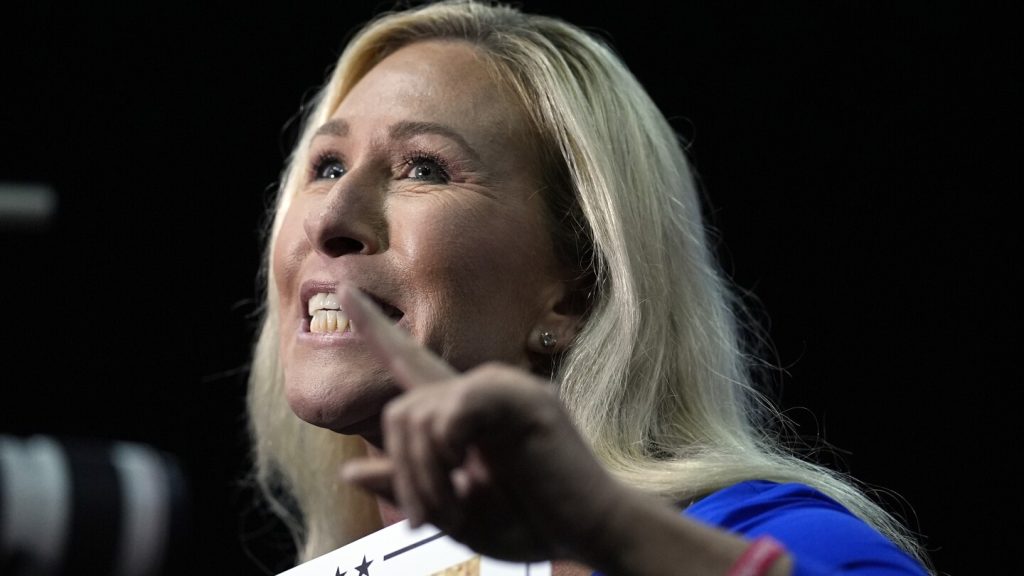The Republican Party in the House of Representatives is facing turmoil as hard-right Rep. Marjorie Taylor Greene filed a motion to vacate Speaker Mike Johnson on Friday. This move comes in the midst of a House vote on a $1.2 trillion government funding package. The threat of ousting the speaker hangs over Johnson as the far-right wing of the party aims to leverage their priorities and make demands through this disruptive tactic, similar to the removal of the previous speaker, Kevin McCarthy, just five months ago.
While the exact timeline for the next steps in Greene’s motion is unclear, the message is clear – the House GOP is struggling to operate as a unified majority. Johnson’s leadership is in jeopardy, especially as he faces challenges in delivering Republican votes, particularly on critical issues like government funding. Democrats have been crucial in ensuring the passage of legislation to prevent a government shutdown, with more than half of House Republicans voting against such measures.
The $1.2 trillion package approved in Friday’s vote was part of the compromise negotiated by McCarthy with President Joe Biden a year ago. This compromise ultimately led to McCarthy’s downfall as speaker and now poses a threat to Johnson’s leadership. The upcoming Ukraine funding package is another challenge for Johnson, as far-right Republicans oppose it. The possibility of Johnson’s removal has left the GOP in a state of uncertainty and division, reminiscent of the chaotic episode that unfolded during McCarthy’s ouster last fall.
Despite Greene’s motion, some Republican lawmakers have shown reluctance to support the removal of Johnson. Rep. Clay Higgins, an ultraconservative from Louisiana, criticized Greene’s move, calling it a mistake. The White House has refrained from commenting on the internal dynamics of the House leadership, suggesting a wait-and-see approach as events unfold. Johnson’s ability to retain his position as speaker hinges on the delicate balance of Republican votes, with the potential for Democrats to play a decisive role in the outcome.
The risk of a Democratic speaker being installed as a result of internal Republican divisions is a concern among some lawmakers. Rep. Matt Gaetz, who was involved in McCarthy’s ouster, warned against removing Johnson for fear of a Democratic takeover. However, with the Republican Party at odds internally, the possibility of Democrats aligning with some Republicans to determine the next speaker cannot be discounted. The future of the GOP majority in the House remains uncertain as lawmakers navigate these challenges and seek to return Congress to a sense of normalcy amidst deep divisions.
As Republican lawmakers continue to depart from Congress, including Rep. Mike Gallagher and Rep. Kay Granger, the party faces further challenges in maintaining its majority and ensuring effective governance. Johnson’s refusal to bring the Ukraine funding package to a vote has heightened tensions within the party, with the potential for critical decisions to be influenced by the threat of his removal. The negotiation of budget deals and compromises is seen as essential for governing effectively, despite the ongoing turmoil within the Republican ranks. The outcomes of these internal power struggles will have significant implications for the future direction of the party and the functioning of the House of Representatives.


